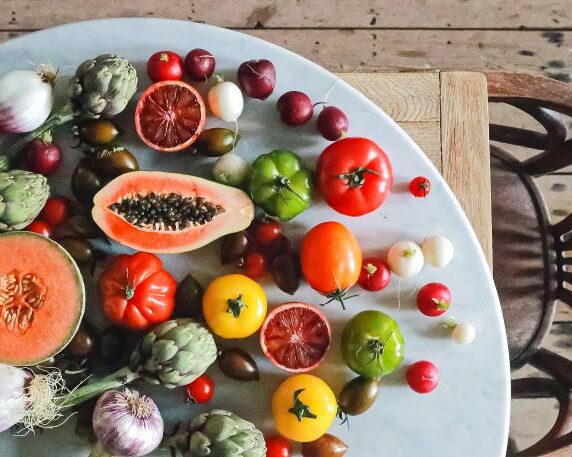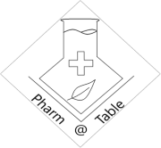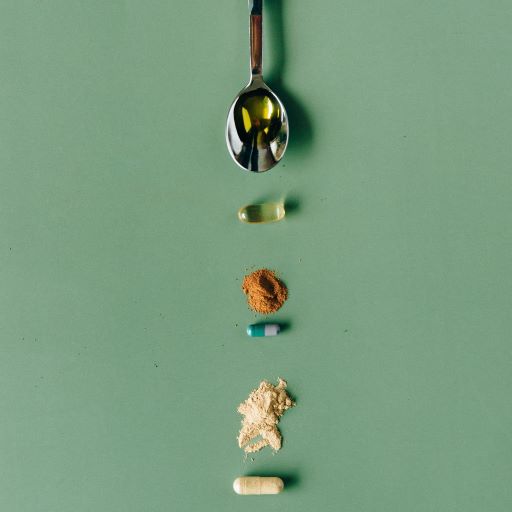The voice of a movie-trailer announcer suddenly interrupts your music with an ad:
The amazing marching band of antioxidants packed into every bottle of Aunty Ox Juice brings a parade of health to the ongoing march against free radicals. It’s your antioxidant Symphony! Committed to keeping you in tune and protecting you from going off key. AND Aunty Ox Juice is harmoniously delicious! Aunty Ox Juice, the antioxidant anthem.
– Advertisement for an antioxidant “super drink”
What’s the Story?
Antioxidants in the News
Advertisements for products containing super-duper, super-healthy, super-food antioxidants seem to be everywhere these days. But what exactly are antioxidants? This word gets thrown around as much as the word “literally” in daily life.
Over the past decades the relationship between free radicals, disease, cancer, and antioxidants has drawn a lot of public attention. But can we define what they do and their role in healthy living? Most importantly, do they even work? Inspired by a chat with colleagues, I discovered that there was a surprising amount that I didn’t know. So, keep on reading, let’s learn together.
What Are Antioxidants?
In the most basic sense, antioxidants are substances that prevent a type of chemical reaction called oxidation from happening. We won’t get into the nitty-gritty here, so just know that oxidation is a chemical process that results in the formation of yet another buzz word – free radicals.
What are Free Radicals?
A quick check of your high school chemistry notes, and you’ll remember that a free radical is just a fancy name for a chemical with a spare electron, free-roaming with nothing to keep it in check.

Think of this like an asteroid out in space.
They have no planet to orbit around, so they wander the solar system. Everything is alright until something gets in its way. A crash with another planet would be a catastrophe! The same concept is at work with a free radical. Wandering on its own is not so bad, until it collides with another molecule. This changes how the molecule works in your body by changing its chemical properties. This can lead to genetic damage and health problems including cancer. Antioxidants prevent this damage by stabilizing the free radial. It can then be safely used or eliminated by the body’s natural processes.
Can Antioxidant Supplements Help Me?
Antioxidants: The Bottom Line
Combining all current scientific data, here is my professional opinion. When it comes to antioxidant supplements and pills, stay away unless you have a known medical condition. Antioxidants may be tools for promoting health and preventing disease, but usually only when they are eaten as fruits and vegetables. In this case, farms beat pharma.
The Data on Antioxidant Supplements
Multiple studies have been conducted and in general it seems supplementing your diet with antioxidant pills and extracts is not helpful. Actually, these supplements can be linked to a higher risk of some diseases and cancers. How can this be? Well, the truth is, we don’t know. Even after all these years, the science is not well understood. There are some theories about why.
Imagine watering a garden. With a controlled amount of water, your garden will thrive. Now, picture throwing water balloons on your thirsty plants. This probably does more harm than good right? Maybe the same is true with antioxidants. Taking them in concentrated, processed forms may be more than our bodies can handle safely, and they lose whatever health benefits they were supposed to have.
Antioxidant Foods
When it comes to diet however, antioxidants show more promise. It’s no secret that some of the world’s most successful eating lifestyles, such as the Mediterranean and Okinawan diets, are known for high intake of antioxidant-rich, plant-based foods. It is possible that in dietary amounts, antioxidants encourage longevity and low incidences of cancer, famously seen in the folks who follow these types of lifestyles.
So, if eating antioxidants in food is the key, let’s talk about types of antioxidants and where to find them.
The Best Place to Find Antioxidants
Biological Antioxidants
The list of biological antioxidants is enormous. Let me make it a little easier by dividing them into 3 basic categories.
- Non-essential antioxidants are made by the body.
- Essential minerals are consumed in small amounts and work when the body uses them as antioxidant building materials.
- Dietary antioxidants must be consumed whole.
Dietary Antioxidants – Antioxidant Vitamins
It is dietary antioxidants that advertisers attempt to get us to purchase with their flashy sales tactics. In truth, these antioxidants often go by common names such as Vitamins A, C and E. It is simply how they act inside the body that makes them “antioxidants”. They are found naturally in fruits, vegetables, herbs, and natural oils.
There it is. The big secret exposed. In my next article I dive deeper into specific antioxidant vitamins and the foods where you can find them.

Talk Nerdy to Me (Details for Professionals and Curious Minds)
Chemistry
In short, free radicals are formed of chemical species which are highly reactive in down stream chemical reactions as a result of the unpaired valence electron they carry. The most ubiquitously discussed reactive species are known as reactive oxygen species (ROS). This is due to both their natural abundance as well as the chemical properties which make the hydroxyl radical the strongest oxidant. Not all reactive species are deleterious however. They are used in normal biological functions such as apoptosis and ion transport.

In this reaction, vitamin E stabilizes the OH (hydroxyl) radical. The free radical electron is visualized as the black dot beside the O (oxygen) atom.
Regarding malignant free radical formation, antioxidants counter this action by donating an election to the reactive species. These donor molecules tend to contain cyclic elements which dampen the significance of a charge imbalance. They are then able to stabilize their own reactivity through resonance.
Efficacy and Safety
One of the largest meta-analyses on the topic of antioxidants revealed that on the aggregate, supplementation with antioxidants is not associated with improved health outcomes. As a matter of fact, several of the antioxidants under scrutiny are associated with increased morbidity, toxicity, and in some cases mortality. This finding held true among healthy people who were interested in taking antioxidants for disease prevention (primary prevention) as well as among people who used the antioxidants for disease treatment or prevention of progression (secondary prevention). Most notably this increased risk occurred with vitamins A and E.
These findings are at odds with a recent meta-analysis that reviewed the blood concentrations of antioxidants among people who consumed them through dietary intake of fruits and vegetables. Evidence suggests that a diet high in plant-based antioxidant consumption is associated with a lower incidence of cancer, disease, and overall mortality.
Conclusions
The stark contrast presented by these two modalities of antioxidant consumption supports the hypothesis presented in this article that there appears to be an upper bound to the health benefits of the concentration of antioxidants ingested in isolation. Consideration must also be given to the beneficial effects of consuming the innumerable compounds present in plant-based foods which may work in synergy with antioxidants to preserve their positive effects on health. Much clarifying research is still needed. For now, current data suggest that concentrated supplementation of antioxidants should generally be avoided, apart from niche applications. No matter the circumstance, a lifestyle consisting of a diet rich in diverse fruit and vegetable intake should be heartily encouraged.
References
- Lü JM, Lin PH, Yao Q, Chen C. Chemical and molecular mechanisms of antioxidants: experimental approaches and model systems. J Cell Mol Med. 2010;14(4):840-860. doi:10.1111/j.1582-4934.2009.00897.x
- Bjelakovic G, Nikolova D, Gluud LL, Simonetti RG, Gluud C. Antioxidant supplements for prevention of mortality in healthy participants and patients with various diseases. Cochrane Database Syst Rev. 2012;2012(3):CD007176. Published 2012 Mar 14. doi:10.1002/14651858.CD007176.pub2
- Aune D, Keum N, Giovannucci E, et al. Dietary intake and blood concentrations of antioxidants and the risk of cardiovascular disease, total cancer, and all-cause mortality: a systematic review and dose-response meta-analysis of prospective studies. Am J Clin Nutr. 2018;108(5):1069-1091. doi:10.1093/ajcn/nqy097
Thanks for learning together. For questions and additional information, please feel free to contact us.


Excellent Article – Factual, scientific, yet easily understood. Provided helpful “to-the-point” information. I look forward to reading more on pharmattable.com!
Thank you kindly for the comment. I am happy to know you find the information helpful and readable. More is on the way.
Pingback: How to Fill Your Diet with Antioxidant Vitamins - Pharm @ Table
Pingback: Know Your Roots: the Health Benefits of Turmeric - Pharm @ Table
Pingback: Can Hearing Loss Be Reversed? - How to Help Your Hearing Health -